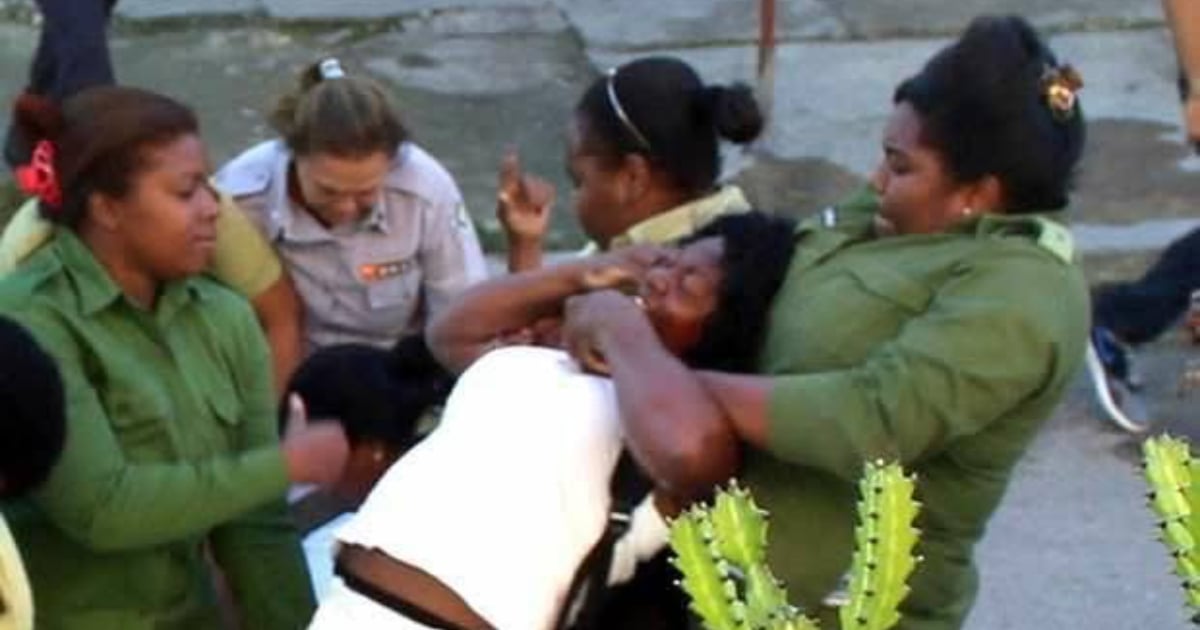The Cuban Observatory for Human Rights (OCDH) has reported over 150 instances of repression in Cuba throughout January, targeting both activists and the general populace. According to the organization's findings, these actions included 18 arbitrary arrests and 66 abuses against political prisoners or their families, with Havana, Camagüey, Villa Clara, and Santiago de Cuba being the most affected provinces.
The OCDH also highlighted the persistent harassment by political police targeting those visiting José Daniel Ferrer following his release, as well as the detention of anthropologist and activist Jenny Pantoja during a human rights protest. Another significant case involved journalist Jorge Enrique Rodríguez, a contributor to Diario de Cuba, who has faced repeated summons and interrogations.
The report emphasizes that pressure on opposition figures remains relentless. Ferrer has been summoned to court again, a journalist has been expelled from the Ludwig Foundation in Havana due to State Security pressure, opponents attending a wake have been arrested, and political prisoners have been denied extrapenal benefits.
The international community has expressed concern over the escalating repression in Cuba and the stalling of political prisoner releases negotiated by the Vatican. Meanwhile, the OCDH warns that the persecution of activists and independent journalists persists as a strategy by the regime to silence dissent.
Throughout the first month of 2025, repression against Cuban opposition figures and activists has intensified, showcasing increased surveillance and harassment by the regime. Among the documented cases is that of independent artist Fernando Almenares Rivera, also known as Nando OBDC, who was arrested in Havana under accusations of involvement in a fire at Lenin Park. His detention is seen as retaliation against dissenting art on the island.
Cuban activist and doctor Fernando Vázquez was violently arrested by security agents in Havana. Meanwhile, José Daniel Ferrer, leader of the Patriotic Union of Cuba (UNPACU), was released after enduring deplorable prison conditions. However, he remains under constant surveillance and harassment by State Security, as noted by the U.S. government, which has warned of the risks he faces on the island.
These incidents, among others, demonstrate the regime's tightening grip on opposition and critical voices in Cuba, employing both physical and digital repressive tactics to curb dissent and restrict freedom of expression.
Understanding Repression in Cuba: Key Questions
What are the main tactics used by the Cuban government to suppress dissent?
The Cuban government employs both physical and digital tactics, including arbitrary arrests, surveillance, harassment, and limiting freedom of expression, to suppress dissent and control opposition voices.
How has the international community responded to the repression in Cuba?
The international community has expressed concern over the increased repression in Cuba, particularly regarding the stalled release of political prisoners previously negotiated by the Vatican.
Who is José Daniel Ferrer and why is he significant?
José Daniel Ferrer is the leader of the Patriotic Union of Cuba (UNPACU), a prominent opposition figure who has been repeatedly targeted by the Cuban government through surveillance and harassment.
